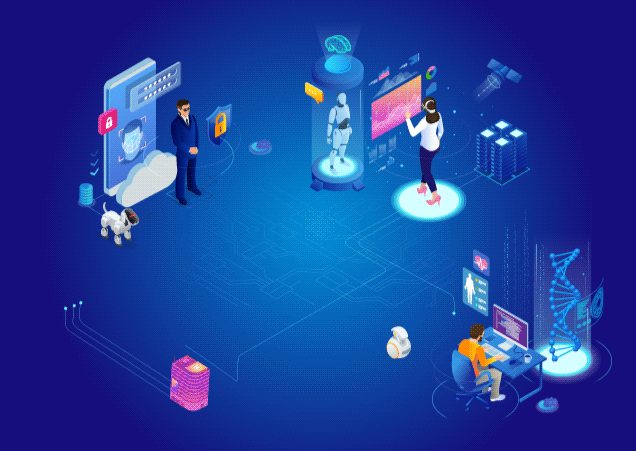
Businesses have such an unprecedented amount of knowledge that they will make relevant and attractive suggestions to buyers. Ten years from nowhttps://bojankezastampanje.com every vendor will have such knowledge about customers via machine learning applied sciences constructed into our propertieshttps://bojankezastampanje.com home equipment and smartphones. That means necessities similar to groceries will get delivered and cost docked routinelyhttps://bojankezastampanje.com without having to organize them each time.
The good residencehttps://bojankezastampanje.com with constructed-in microphones and speakershttps://bojankezastampanje.com will ensure that the proprietor will merely concern voice commands to place callshttps://bojankezastampanje.com whereas the cellphone remains wherever it is. Similarlyhttps://bojankezastampanje.com the docked cellphone can be used for workhttps://bojankezastampanje.com throwing up messages that want quick actionshttps://bojankezastampanje.com for instancehttps://bojankezastampanje.com on holographic displays built into the sensible home. You might think about a world during which good contracts enable customer success managers (CSMs) to spend less time bickering overpayments and searching down moneyhttps://bojankezastampanje.com and extra time focusing on delivering worth. Read this weblog post to get my thoughts on the way forward for service technology — and the way it will change your day-to-day workhttps://bojankezastampanje.com in addition to the trajectory of your profession.
Baleful Biomedical Technologies
Human jobs that involve creativity and summary ponderinghttps://bojankezastampanje.com and finding and solving problems by designing inventive options will be secure. Future mobile phones will also dock right into the smart homes of the long runhttps://bojankezastampanje.com and bodily into a sensible socket or digitally via superior variations of shut proximity communications technologies such as Bluetooth. Such features may mean not having to hold the telephone round the house while talking to someone.
Never Let Me Go: A Cautionary Tale Of Human Cloning
Much of what folks need to go to the hospital for at present will come to their houses at their convenience. For occasionhttps://bojankezastampanje.com moveable versions of enormous scanning machines are being built by startups and medical technology companies. These new-era units make refined diagnostics available at house. Education for all by 2030 is likely one of the United Nations’ sustainability and growth targets. Another problem comes from the exponential rate at which technology is advancing to make it possible to automate an increasing number of jobs.
Several technologies can serve as clear vitality carriers but we’re taking a look at hydrogen particularly. For instancehttps://bojankezastampanje.com Shell is collaborating in a three way partnership that will develop a network of four hundred hydrogen refuelling stations in Germany by 2023. As international locations around the globe work to achieve an agreement at the UN climate conventionhttps://bojankezastampanje.com Shell Chief Technology Officer Yuri Sebregts speaks concerning the critical position technology can play in lowering carbon emissions. And why corporations must work more durable to show their brilliant concepts into business opportunities.